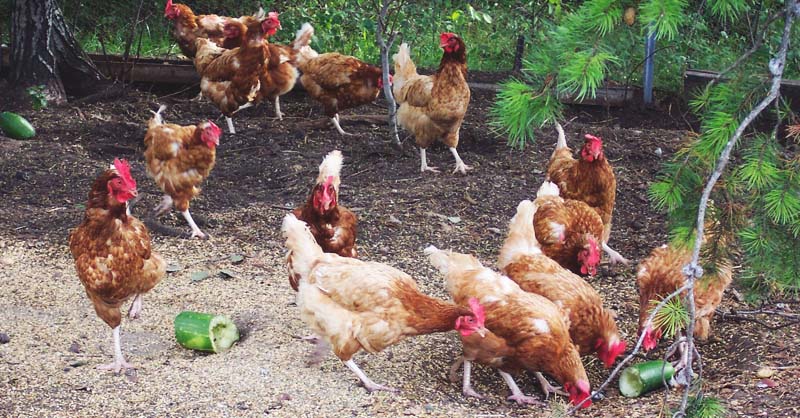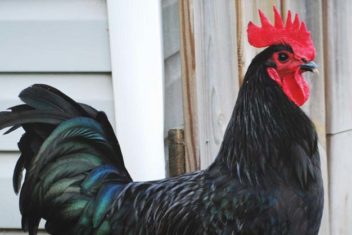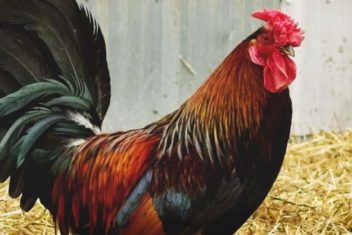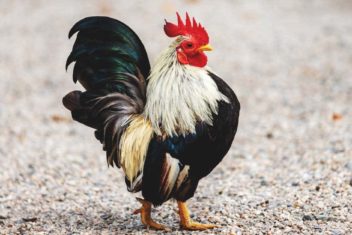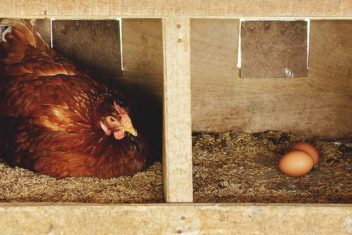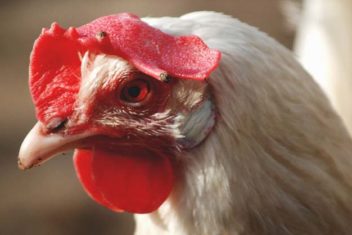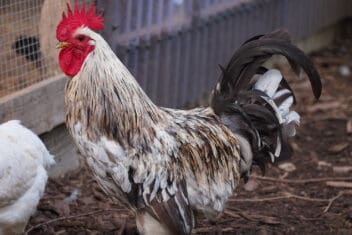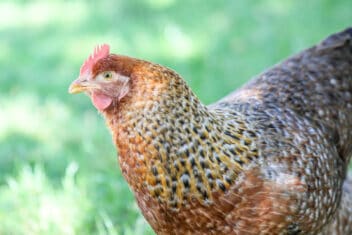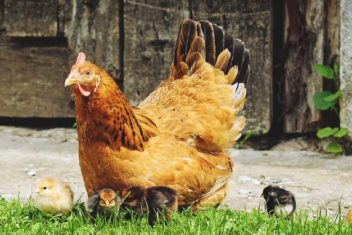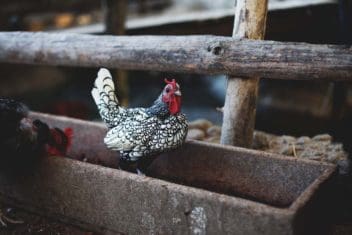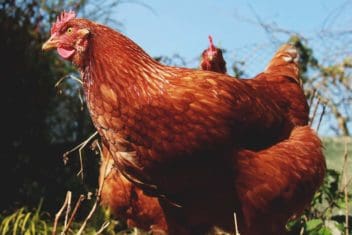A chicken garden is a great way to supplement your chickens’ diets and keep them busy. If you have issues with your chooks scratching your garden into oblivion, then they need their own garden.
There are many types of chicken gardens you can plant for your flock. In this article, we’re focusing on a garden that can aid in the health and wellness of your chickens.
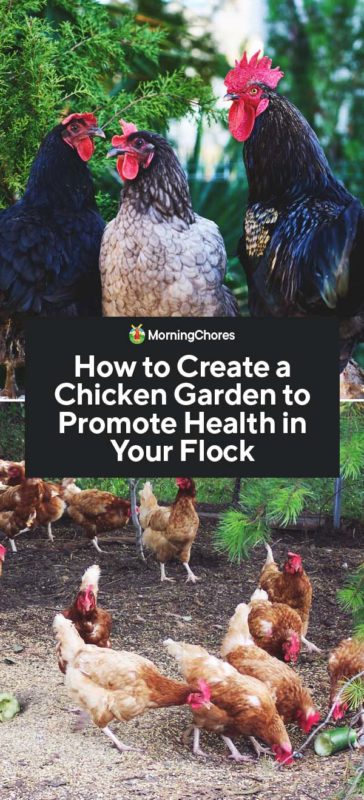
Planning Your Chicken Garden
You know your chickens aren’t picky, so giving them a simple garden should be pretty easy. However, there are some things to think about before you start planting your garden.
1. Best Location for a Chicken Garden
Your chicken garden should be in a location that your chickens have easy access to. They should be able to exit the coop in the morning and walk into their little paradise you’ve created.
Most gardens should be in an area with partial shade but have at least 7 hours of sunlight throughout the day. Most plants, or veggies, will do very well in these conditions.
Make sure the soil is full of nutrients and well-drained. If you are making a raised garden bed for your chickens, you will have a lot of control over the soil in the garden.
2. Raised vs. Non-raised Chicken Garden
Do you have the right kind of soil for your chicken garden?
If you are planting herbs for your chickens, most soils will be fine, as these plants are hardy.
Raised beds are nice because you have complete control over drainage, soil, and the location of the garden. However, they may not be as appealing to chickens because they love to get down in the dirt that is most readily available.
3. Size of Your Chicken Garden
The size of your chicken garden is determined by the number of chickens you have and the size of your chickens.
Honestly, the bigger the better when it comes to a chicken garden because, as you know, they will destroy a small area quickly.
Give them plenty of space with a ton of plants to peruse.
What to Plant in Your Chicken Garden
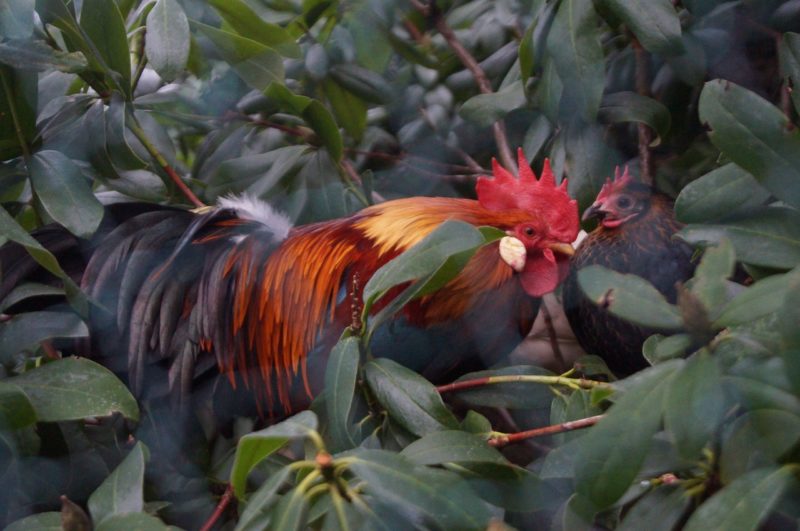
Chickens love to taste-test all kinds of plants, but there are some that are more beneficial to their health than others. Herbs, for example, can be called upon when your chooks come down with an ailment.
Vegetables, on the other hand, can provide a slew of health benefits for your flock, plus hours of enjoyment! Read on to learn about the types of plants to include in your chicken garden:
1. Herbs for Your Chicken Garden
Since we are planting a chicken garden that promotes the health and wellness of your hens, we are going to focus on herbs that do just that.
The great thing about your new herb garden is that you can use it as well. Plus, many herbs are perennial, meaning they will come back year after year.
So, even though you are planting the garden for your chickens, they won’t mind if you use their herbs once in a while.
2. Herbs to Support Chicken Immune Health
If you’ve had the pleasure of owning chickens for any amount of time, you know they come down with colds and other ailments–just like us.
The good news is, the herbs in this garden will help support their immune and respiratory systems.
Here are a few herbs you can plant in your chicken garden that will help boost their immune system:
- Hyssop
- Blue Cornflower
- Echinacea
- Rosemary
- Thyme
Chickens will not necessarily eat herbs off the plant, but you can put them in their feed and they may peck through them.
3. Chicken-Friendly Edible Plants
Herbs can be a great way to provide support for your chickens’ immune systems, and a nice little addition to your spice rack. Check out the following plants that will make your chickens day a little sunnier:
Pumpkins
Pumpkins may help prevent internal parasites in chickens. The jury is still out on the truth behind this method, but one thing is for sure; your chickens will love to nosh on pumpkins seeds in the fall.
Pumpkins are also rich in vitamins A and C, as well as carotenoids–in other words, you are going to have some gorgeous bright-orange egg yolks.
Watermelons
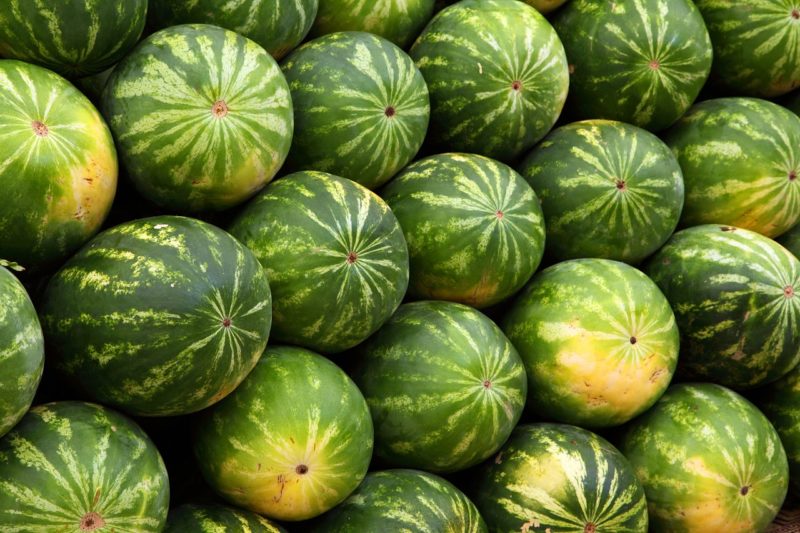
Give a chicken a watermelon and you will think she’s lost her mind. Aside from things like styrofoam, watermelon is like candy for chickens. (I’m not sure why they love styrofoam but if you’ve gotten any goodies shipped to you recently, make sure not to leave it lying around)!
Garlic
Garlic is also considered a natural dewormer, but both pumpkin and garlic should be used as a preventative measure and not to cure a severe infestation.
Chickens need to have acquired a taste for garlic, so feeding it to them free-choice at a young age will help develop their taste for it.
If your chickens don’t like to feast on garlic by choice, you can always crush it and put in their water founts so they get the benefits.
Lettuce
Lettuce is an easy-to-grow veggie that chickens love to munch on. Giving them this plant will complete their salad bar. Yum!
As a side note: Iceberg lettuce has very little nutritional value, so never assume your chickens are getting what they need from your garden. Always supplement with chicken feed.
Extras to Include in Your Chicken Garden
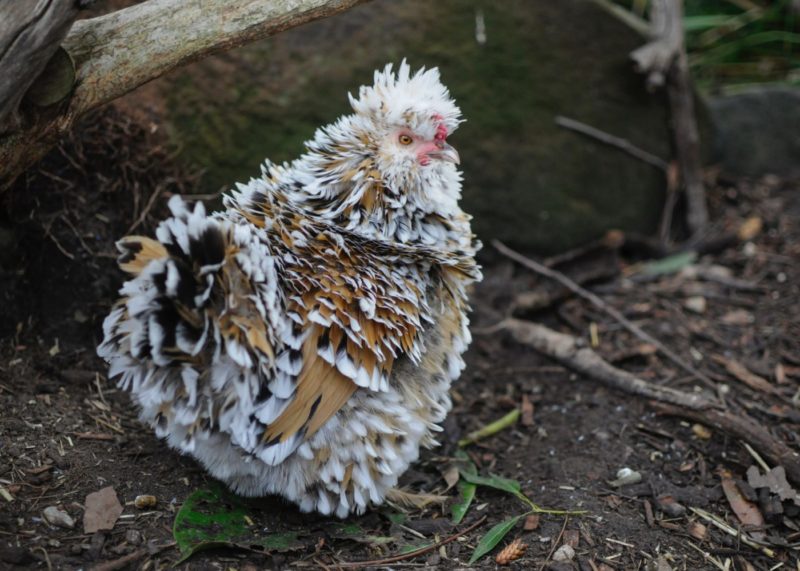
You could plop a few herbs in a small area and call it good, but you still need to take the time to add other desirable characteristics. Otherwise, your chickens may pass by the herbs and head straight to your vegetable garden.
1. Dust Baths and Chicken Gardens
Chickens need to take dust baths to ward off external parasites and to keep their oil glands in check.
Adding a large area for dust baths will attract your chickens without much extra effort on your part. You can section off a large area and add dirt or diatomaceous earth for them to flap around in.
Once chickens find a favorite dust bath location, they will be back time and time again.
2. Nesting Boxes
If your chickens are free-range, you can consider giving them a secluded area of their garden with nesting boxes. Although, they may prefer to find their own location.
It can be difficult to find eggs in a thriving garden. Consider offering your hens a quiet place to lay so you have easy access to your fresh eggs.
3. Safety from Predators
As always, predators are lurking everywhere. You can plant bushes and shrubs around your garden that are chicken-friendly. Shrubs should be easy for chickens to hide beneath should an aerial predator decide to have chicken for lunch.
Fencing is another option for keeping large predators out of your garden. Some keep their chicken coop directly in the garden they’ve planted for their chickens, and fence in the entire area to ensure safety. Not a bad idea!
4. Separate From Your Garden
It probably goes without saying, but once your chickens get a taste of their own garden, they will always want more. As chickens can’t differentiate your garden from theirs, take some time to implement measures that will keep your chickens out of your garden and in theirs.
It’s a nice gesture to give your flock a space of their own to just be chickens, but when you fill it with plants and other goodies that they enjoy, it makes it all the better.
After all, what other ways are there to say thank you to the hens that provide breakfast every morning?
Now that you know how to make a lovely chicken garden, also keep an eye open for our next post on what NOT to feed your chickens and shouldn’t plant in their garden.
